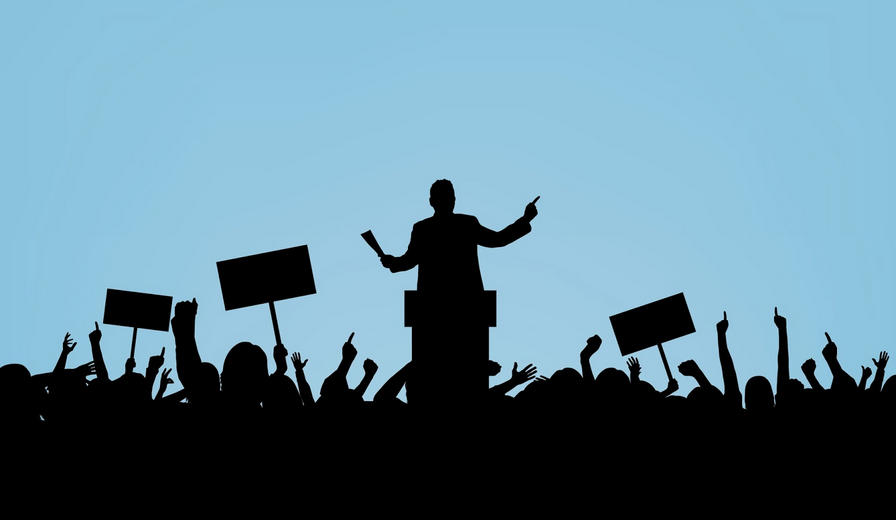 By Aaron Kesel
By Aaron Kesel
The National Park Service is asking for the public’s opinion on proposed revisions to Title 36 of the Code of Federal Regulations, section 7.96 for the National Mall, President’s Park and other national parks in the Washington, D.C. area, proposing a First Amendment permit for those locations.
Yes, you read that right a “First Amendment permit” with regulations is being proposed in Washington D.C., which could potentially set a precedent for anyone who wants to stand up for a cause elsewhere in the United States.
The Park Service states that the modifications would maintain opportunities for people to hold special events and exercise their right to demonstrate while proposing ridiculous regulations that are meant to “protect the iconic landmarks, views and grounds for use and enjoyment of citizens and visitors from around the globe.”
“From the steps of the Lincoln Memorial to the Ellipse —D.C.’s national parks have always served as a stage for groups wanting their voices heard. The role the National Park Service plays in facilitating these groups’ First Amendment rights—regardless of their views—is not something we take lightly,” said acting National Capital Regional Director Lisa Mendelson-Ielmini. “These proposed changes would provide much needed clarity to regulations while ensuring those unalienable rights remain. They will also ensure that iconic viewsheds are left unobstructed for the millions of people who visit every year to experience them. We have a great opportunity to improve the ways we make these special places accessible while preserving them for future generations. We encourage everyone to review the proposal and share their thoughts.”
(Source: National Parks Traveler)
The National Mall and President’s Park are regarded as premier civic and symbolic spaces in the United States and the volume and complexity of permit requests has increased dramatically over the years.
Each year, the National Park Service issues an average of 750 permits for First Amendment demonstrations, and an additional 1,500 permits for special events in and around D.C. More individuals and groups seek to use these iconic locations for demonstrations or events such as concerts and festivals.
The proposed 94-page rule is intended to provide permit applicants with more certainty about where they can hold events while protecting iconic statues, and memorials around D.C.
As written earlier in this article, if this passes and is enacted into law, there could be a coming precedent and new regulations passed on the First Amendment. Specifically regarding the “right” to assemble or protest for a cause.
H/T: MassPrivateI
Aaron Kesel writes for Activist Post. Support us at Patreon. Follow us on Minds, Steemit, SoMee, BitChute, Facebook and Twitter. Ready for solutions? Subscribe to our premium newsletter Counter Markets.

WHAT IGNORANT JACKASS came up with THIS CRAP???
Show his/her/it’s photo WITH the YAMICA/kipa ???
https://uploads.disquscdn.com/images/82fc63e3e211ae5d834d5b9d1a3750786182cb607605ca602b4326ce4d4cdeb5.jpg
The last time I was in DC, I was annoyed at there being yet another protest on the steps of the Capitol building. I was hoping to get photos of our group that was there to accept an award and we had to be slipped in a side door to meet with our state Reps and Senators that had offices in the Capitol building.
Requiring a permit to hold a rally that expects to have over a certain number of participants isn’t a bad thing as long as the process is consistent and doesn’t have any bias. I also don’t have a problem with permits being denied for groups with a reputation for violent protests. The permits do not abridge an individuals First Amendment Right to free speech, it’s a public safety issue. There also isn’t a problem with the right to peaceful assembly. Rent a hall and you can invite as many people as you like up to the rated capacity of the building for any legal purpose that you like. No problem, but just like you can’t yell “shooter” in a crowded theatre, encouraging 50,000 people to occupy a public space should also be out of bounds without some controls.
Large rallies are a PIA for the local police and city crews. It means lots of overtime in some cases and a huge mess to be cleaned up afterwards. Ever seen what the Capitol Mall looks like after a big protest? It’s covered in trash and the plants get a thorough mauling. This means less money for the public works to clean up after all of the ducks that foul the reflecting pools and surroundings.
Hmmm
There is just one gigantic problem with this statement and your support of its intent: NEITHER YOU NOR THE GOVERNMENT HAVE THE RIGHT TO DO IT!
With that I have only one question for you Kenneth: Are you literate? In other words can you read and comprehend the English language? A simple yes or no will suffice here
I ask because the First Amendment is crystal clear on the right of the people to peaceably assemble: It is an in alienable right of the people. And it is recognized without restriction, qualification or limitation.
The First Amendment: ” Congress shall make no law respecting an establishment of religion, or
prohibiting the free exercise thereof; or abridging the freedom of speech, or of the press; or the right of the people peaceably to assemble, and to petition the Government for a redress of grievances.”
Therefore this is unconstitutional on its face and thus illegal.
{“Requiring a permit to hold a rally} that expects to have over a certain
number of participants isn’t a bad thing as long as the process is
consistent and doesn’t have any bias. I also don’t have a problem with
permits being denied for groups with a reputation for violent protests”
What could possibly go wrong?